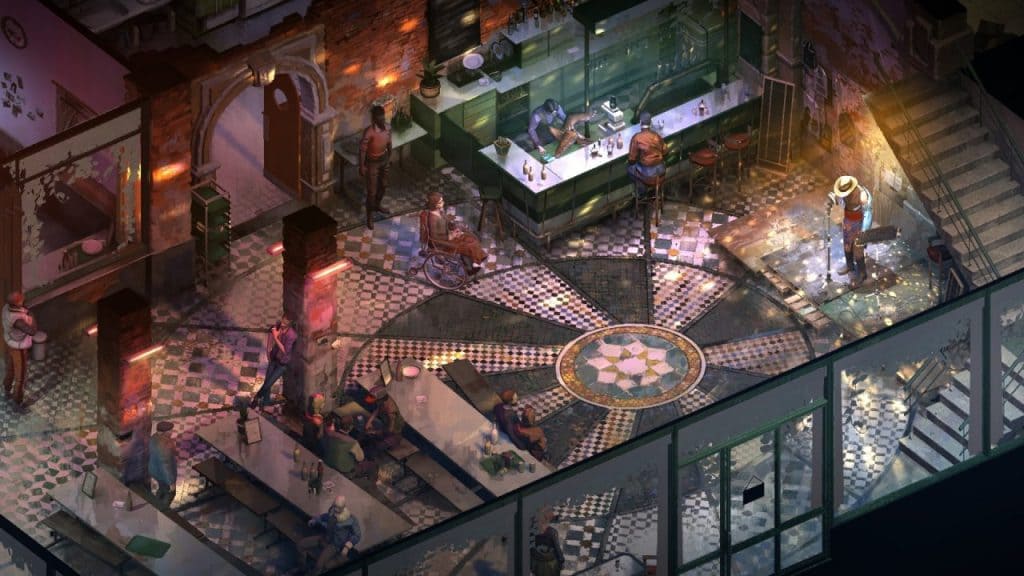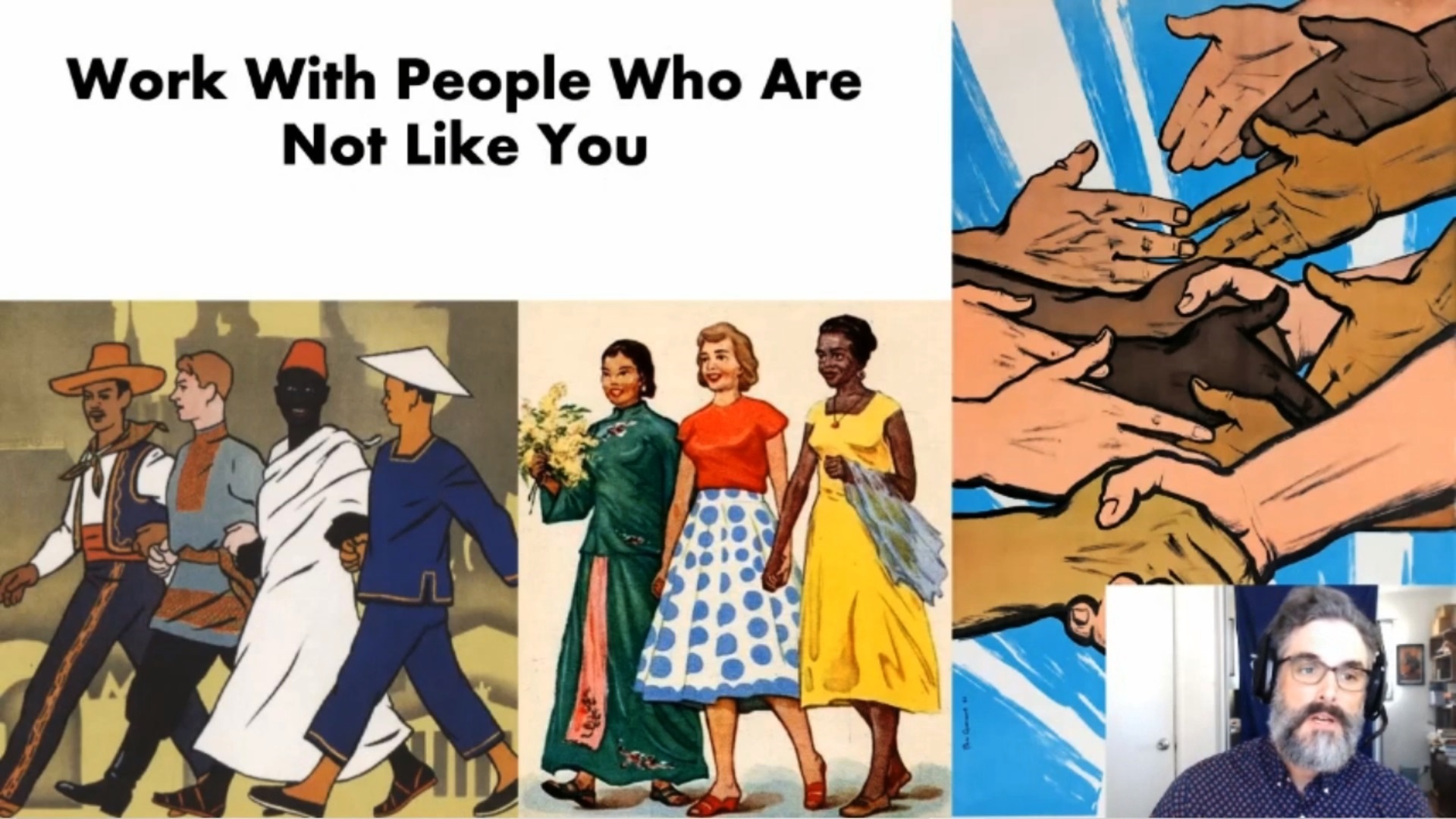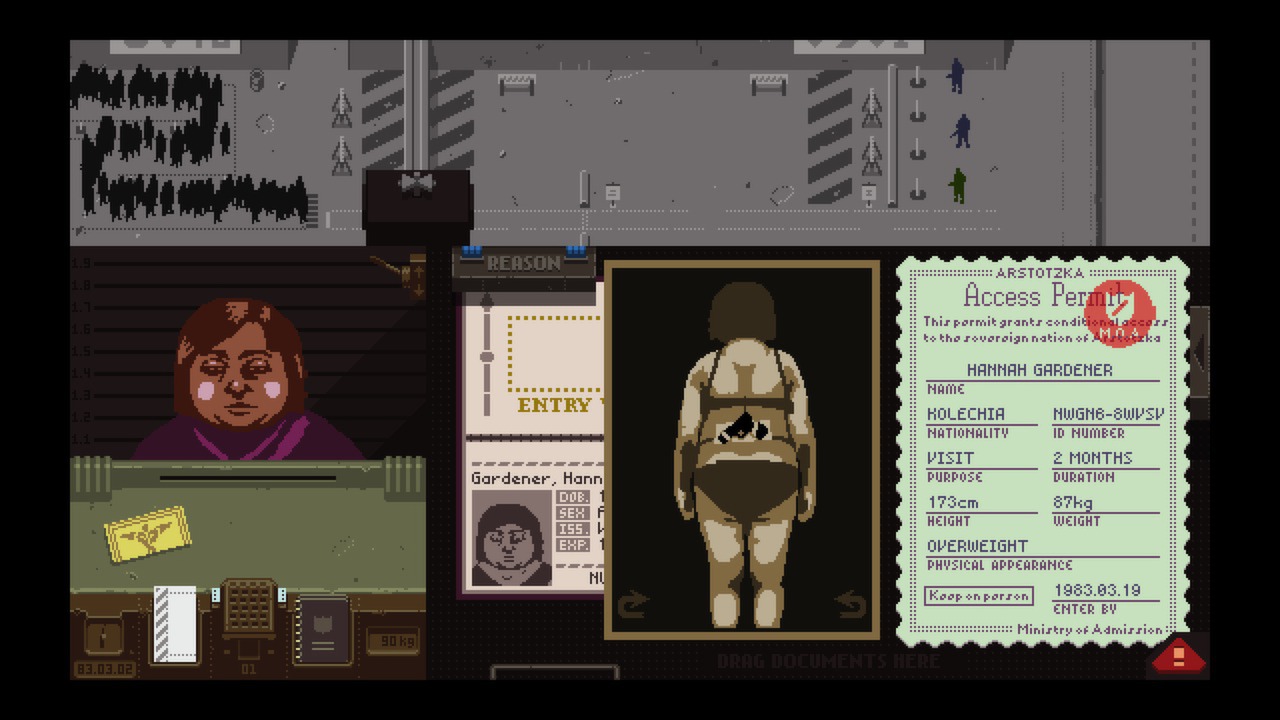Game designer/writer/director Josh Sawyer gave a keynote speech at the recent DStars Connects. His talk was centered around the idea that smaller studios working on smaller projects will play an increasingly noticeable role in the industry as it evolves in the years ahead. He also outlined tactics on how to make it as a small team.
Josh Sawyer is known for his work on role-playing video games, including the Icewind Dale series, Fallout: New Vegas, and the Pillars of Eternity franchise. He is currently developing an undisclosed small project with a small team at Obsidian Entertainment.
Below is the edited transcript of Josh’s talk at DStars Connects.
Josh Sawyer
When I look at how the industry has changed over the years, it makes me think that the future of game development, for most devs, is in smaller teams and smaller projects that are more meaningful to the people behind them.
Why do I think that? Let’s see where we were 20 years ago.
The industry in 1999
- First of all, there wasn’t a lot of cross platform development.
- Second, there was no digital distribution. The fact that you had to distribute a physical copy of a game in a store had so much more impact than you might expect. The box design was very important, as was the cost of all the things in the box. How many CDs or DVDs is it? How thick is the manual? What paper is the manual made of? How much does it weigh?The physical copies had to take up shelf space. So the retailer would be picky about what games they took and in what quantity, and they could return them if they didn’t sell. It informed a lot of the decisions about what games were greenlit, what games made it through development and got published.Producer Jason Bergman told me a story of a game that was finished and went gold but it never shipped because the publisher calculated that the cost of reproducing the physical materials and distributing them would not be recouped. That’s very atypical but that’s the way things could be back in 1999.
- Third, the market belonged to big titles. There were small games, of course, but they were usually considered budget games or, more unfavorably, “shovelware” as they didn’t typically have a lot of artistic merit or offer experimental gameplay.
- That said, even a big budget was just a few million dollars back then, maybe 10 million. So there was some experimentation on wild ideas and games simply because the budgets weren’t really that high.
- Finally, the dev teams were not particularly diverse at this point. That’s not to say there were not any exceptions, but there were no women among game developers. A not a whole lot of non-white, gay or transgender people. I’m not saying it’s a lot better now, but it was certainly much worse in 1999.
Changes around and after 2010
Around 2010, some things were really starting to change quite significantly in the industry.
- Multi-platform releases did become a lot more common. There were a lot more games released on both PC and console, either concurrently or within a very short period of each other.
- Digital distribution was already happening during this time, but it hadn’t quite taken off yet.
- Many mid-sized developers either were bought out by publishers or simply collapsed. As for large development teams, they started getting extra-large. You started seeing dev teams of over a hundred, several hundred people or multiple studios working concurrently on a very large game.
- The budgets got a lot higher. And with higher budgets, there came a lot more risk aversion. Companies wanted to invest big for a big payout, spending for example 30 million to make 80 million. They didn’t want to do small or experimental games. That was one of the reasons why we couldn’t make a game like Pillars of Eternity with a publisher at this time.
- Finally, dev teams became a little more welcoming and diverse. I did actually work with some women. Gay, lesbian and transgender people were more welcome at studios.
The industry today
- There’s not really a sharp delineation anymore between PC and console and, in some cases, even handheld and mobile. The middleware has really changed this. If you work with Unity or Unreal, the idea of cross-platform support is integrated into these engines.
- Digital distribution now is the norm. I don’t often hear people talk about physical products at all outside of the context of collectors additions. That dramatically changes how we think about what games can be made, how they can be profitable, how they’re distributed.
- There are still huge publishers and huge dev teams, like a 400 person studio. But there are also hundreds of small dev teams and quite a few small publishers right now.
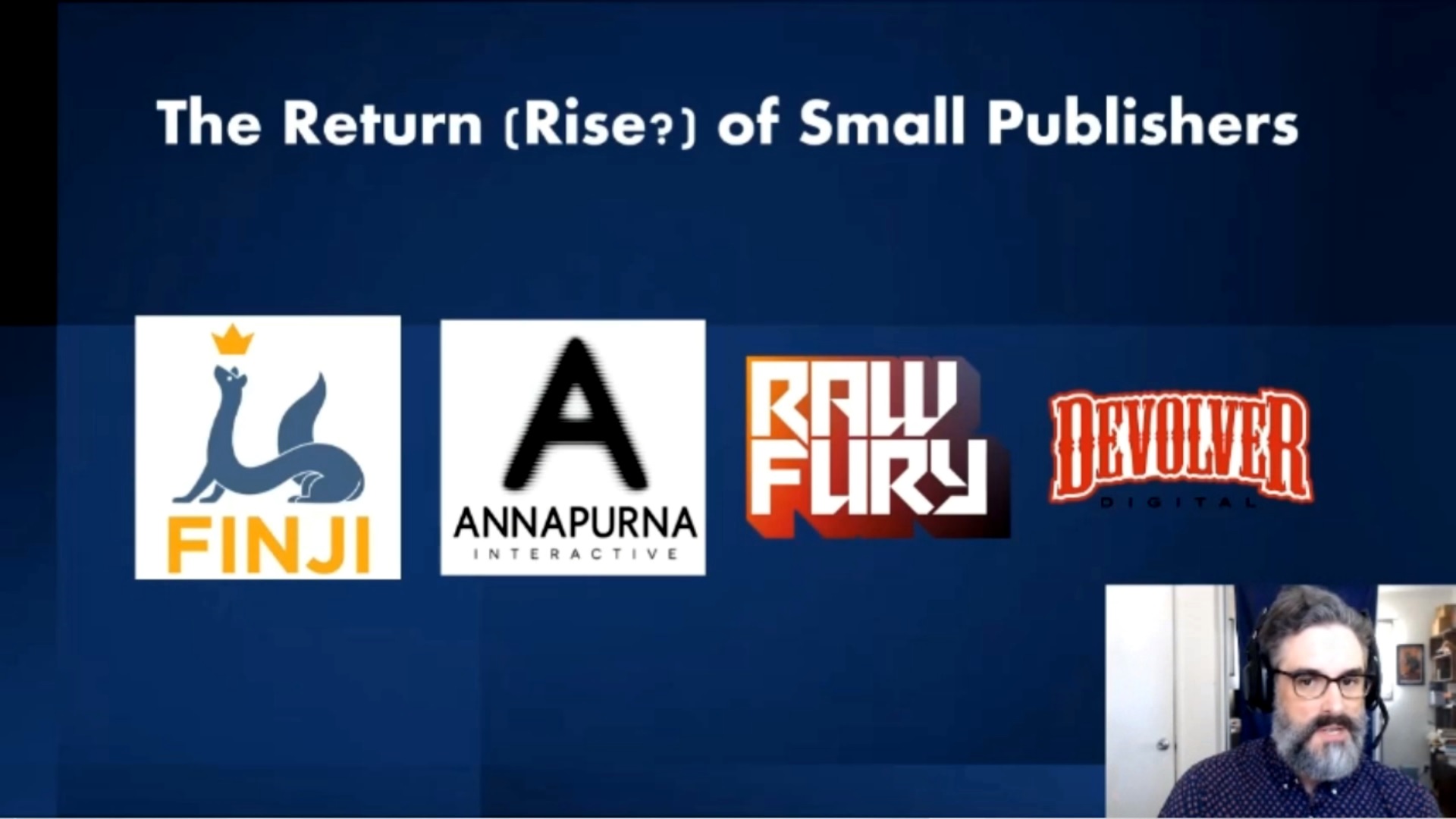 And they are not just there to fund your game. Publishers do PR and marketing, they help get your games noticed by human beings who might buy your games. For Pillars of Eternity, we partnered with Paradox. They weren’t funding the game, but they were marketing and distributing it in certain territories.True, there are a lot of games that come out without publishers. Overhype Studios went without a publisher for their title Battle Brothers. But given how crowded the market is right now, it can be very difficult to get traction if you are small team.
And they are not just there to fund your game. Publishers do PR and marketing, they help get your games noticed by human beings who might buy your games. For Pillars of Eternity, we partnered with Paradox. They weren’t funding the game, but they were marketing and distributing it in certain territories.True, there are a lot of games that come out without publishers. Overhype Studios went without a publisher for their title Battle Brothers. But given how crowded the market is right now, it can be very difficult to get traction if you are small team. - Budgets are all over the place. We have games that have well over $100 million dollar budgets. And we have games that have $30-50 million and even $2 million budgets, sub-$1 million budgets. And crowdfunding happened in 2010. We started seeing other sources of funding for games.
- Dev teams now are kind of more welcoming. It’s not quite there yet, but progress is being made.
So what does this all mean?
The way I see it, small teams can now be commercially successful making games that are more personal, that resonate with niche audiences. And I really think that’s going to be the way to go for the industry in general. It’s going to grow the market of who plays games, because people who might not have been catered to 10 or 20 years ago now find games appealing to them, aesthetically or mechanically.
That doesn’t mean that the big teams are going away, but it does mean that many more people are going to be able to make small games with small teams and find commercial success.
Small teams can now be commercially successful making games that are more personal, that resonate with niche audiences. It's going to grow the market.
Look at the following games that came out in the last decade.
- Kentucky Route Zero. The first episode came out in 2013
- Gone Home, 2013
- Stardew Valley, 2016
- Night in the Woods, 2017
- Dead Cells, 2018.
They are all games made by small teams. And they all found very cool niche audiences and did very well.
So I want to give some advice for the road ahead. It’s focused at junior level or associate level devs and people who only want to get into the industry. Here it goes.
Don’t start at a big studio
I would caution against going to work for a big studio right away.
- First of all, there’s not very much room for personal expression, if any at all.Large teams rally around a vision. It’s like building a pyramid. You got one or two fancy folks up at the top, and then you have hordes and hordes of people that are doing all the manual labor, executing that one vision.
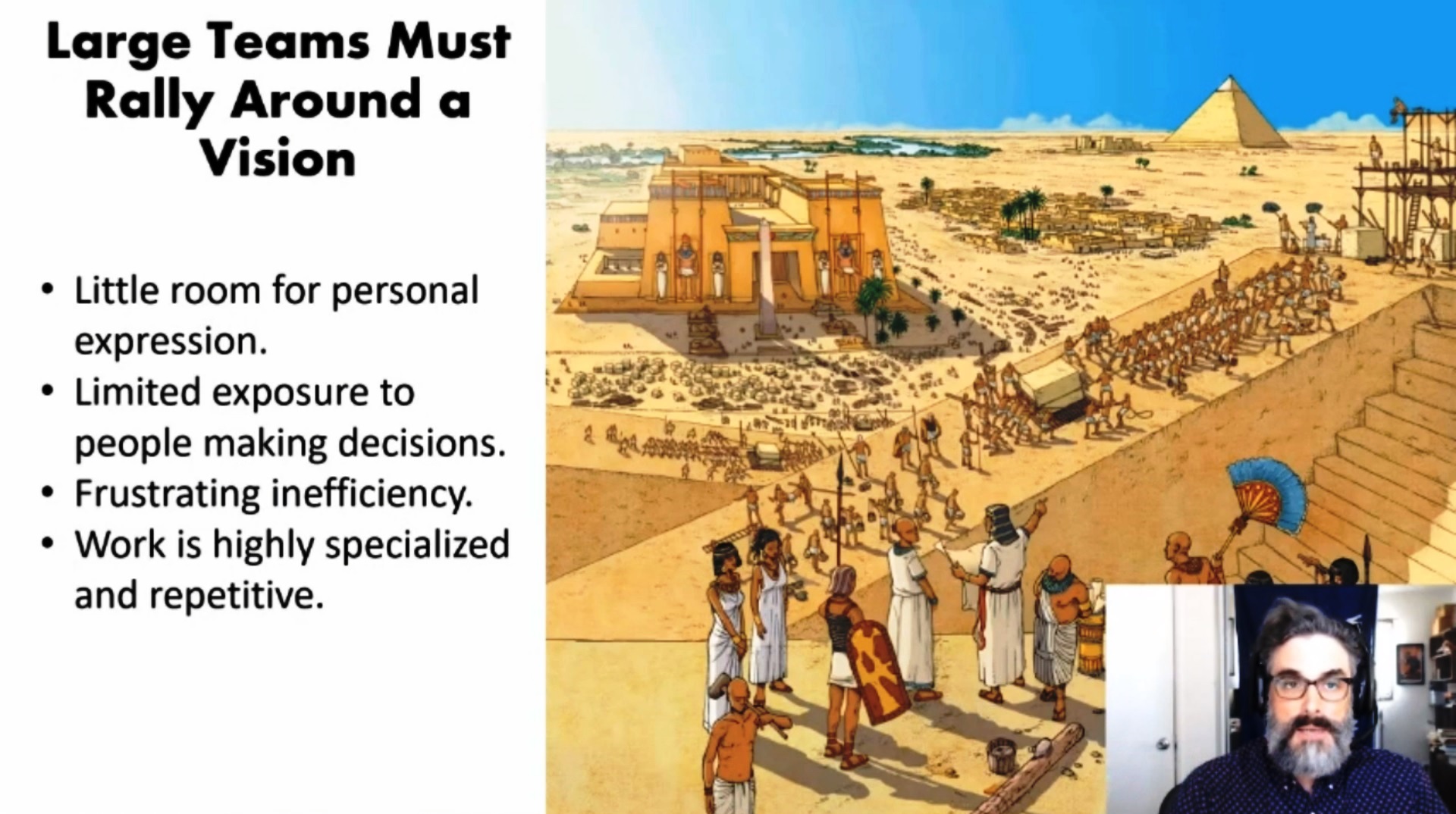 None of those people pulling that block is going to go up to the foreman of the group and go like, “What if this were a cube instead? What if we put a big blue stripe down the center of it? That could really add a lot!”That’s what working on a big game team is like. A huge number of people are all taking a vision from a central directive. And the more people are on the team, the less input they have into that process.
None of those people pulling that block is going to go up to the foreman of the group and go like, “What if this were a cube instead? What if we put a big blue stripe down the center of it? That could really add a lot!”That’s what working on a big game team is like. A huge number of people are all taking a vision from a central directive. And the more people are on the team, the less input they have into that process. - Second, you have limited exposure to the people at the top that are making all the decisions. If there are a hundred people on a team, the head of the project simply won’t have time to talk to everybody. Moreover, there may be many layers of management between staff level employees and even a discipline director, design director, programming director.
- Third, work is often very highly specialized on large teams, so it can feel very repetitive and draining. And you’re going to do it for three years straight. Building props like cans and boxes. Obviously we all have to do that stuff, but on larger teams, it becomes more specialized and more repetitive.
- Fourth, big projects or big studios don’t ensure safety. Some people will go to big studios because they have a sense that big studios and big projects are safer. Well, not really! Big projects also get canceled, with associate and junior devs often being most vulnerable to layoffs.When projects get canceled, you can discover that you have worked for years and have nothing to show. I knew some people who worked at exclusively big studios for six or seven years, on three different projects, which all got canceled. And because of NDAs, they weren’t allowed to show anything that they had worked on. And that’s rough when you’re trying to then find a new job. Big studios can often have very draconian NDAs.
- Finally, big projects can take a serious physical and mental toll. The larger the team is, the less personalized everyone’s relationships are. And the more you become kind of a cog, which can lead to you suffering a lot in the process.
Don’t get me wrong. It can be really cool to work on a big game, but there’s a lot of dangers that come with it. Besides, it’s even not that much more satisfying than working on a smaller project. Whether it’s 10 or 12 million people that have played Fallout: New Vegas or a million people who have played Pillars of Eternity, it comes down to finding a niche audience that really appreciates your game. Then I think it’s going to be satisfying either way.
Make what you’re passionate about
I think you should work on what you’re passionate about. Well, sure, easy for me to say! But given that this market is so crowded, there is not a super compelling reason to sort of cynically make something that’s just appealing.
Take Disco Elysium. The team behind the game expected to fail, but they still really wanted to make this game. And when it came out, it was very well received.
Disco Elysium (2019)
So don’t work on something for the sake of chasing a trend if it doesn’t appeal to you. First of all, it’s probably going to show in what you make. Second, it’s not going to do that well because it’s competing with so many other games that are probably trying to do the same thing. And third, you’re going to get really dispirited and burned out.
Don’t be afraid to work remotely
I don’t just mean working from home because of COVID-19. Working with people who might be in a different hemisphere is getting increasingly possible logistically. Moreover, it might be one of the best ways to work for certain teams when they share a common vision and enthusiasm for an idea.
Take Mordhau. It was made by a largely Slovenian team that also worked with people from all over the world. It wasn’t a physical studio for a lot of the developers. It was just a workspace online.
Don’t live to work
The first three or four years I was in the game industry, I really lived to work. At one point, I went over 300 days going to work even on weekends, even for holidays.
Have you read articles about retention in the industry? Tons of people drop out before their fifth year in the industry. It takes a heavy toll on people, psychologically, physically, emotionally. It takes a toll on people’s relationships.
So if you want to survive in the industry, don’t live to work. There is life outside of your job, and spending time doing other things will prevent you from burning out.
Experience things that are not games
Sometimes I see a team of passionate developers who share the exact same references to the exact same games and pieces of media, discussing the same movies. There is some benefit to that because you have certain shorthand in communicating, but it also means that your perspective is quite narrow.
Spending time away from work, doing other things that you are really into goes a long way.
Your interests will help inform your games. Do you know the origin story of Pikmin [real-time strategy and puzzle video game series published by Nintendo that focus on directing plant-like creatures called Pikmin]? Game designer Shigeru Miyamoto was working in his garden and just had the inspiration for these little Pikmin creatures. That’s a whole series of cool games that came out of just a hobby of working in the garden. And those bits of inspiration will come from seemingly nowhere.
Mod before developing
Even if you’ve completed a game development course, it’s useful to do modeling before or even while developing something.
If you work on small-scale projects, the number of people contributing is relatively limited. So is the number of assets. But when you mod a shipped game, seeing the scale and scope of all the assets and how they work together is very illuminating.
I sometimes like jumping into files and mods. I’ve been doing this 20 years just to see how people do things, how they structure dialogues, how they organize files, what their workflow is.
Modding can help you learn a lot with relatively limited liability. Because if you screw up a mod, it’s not that big a deal.
Start small
Whether you’re modding or making a game, start with a small idea and work outward. This is not even unique to junior and associate devs. Sometimes people who’ve been in the industry 10 years still get their scope too big. And then they’re stuck because they’ve committed to building something that is beyond them. Start small, plan on building from a solid base, understand that you may have to contract at various stages of development.
Work with people who are not like you
The game industry is now a little more diverse than before. So try to work with people who are not like you, people who don’t necessarily look like you, who don’t have your outlook, who don’t have your background.
There are many ways to be different from you. And all of those perspectives can contribute to broadening your understanding and ultimately making your game better.
But here’s the important thing. You actually have to try to find those people. I used to have a very naive idea that all you need to do is to wait for them to apply and then you just hire them. But it’s not that easy. They might be naturally hesitant to enter a space where they don’t look like anybody else. So you have to actually reach a hand out and invite these people.
You and your details matter
Your own background, the details about your life will matter. And they should go into the game. Then it feels personal and real. There are billions of people on this planet, and you will probably find some people who are sympathetic to the experience that you went through.
Build on your experiences
I worked on a bunch of isometric party-based fantasy role-playing games. And each one that I worked on allowed me to build on the previous one.
When I worked on Fallout: New Vegas, I was not expecting to work on a first-person console and PC shooter RPG.
So I had to learn a lot very fast. And I brought all of my RPG experience into the project to try to make it work within that new environment. So as you develop your career and your experiences, try to use whatever you’ve made, don’t just throw it out.
Make something that stands out visually
In a marketplace that is flooded with so many cool games, if you can make something that stands out visually, that will go a long way.
I’ve heard it said that if you can make a GIF of it and put it on Twitter for people to share it, do that.
Make things that stand out conceptually
There are certainly things that you can criticize about Papers, Please, but it’s built around an incredible idea. The game puts you in the shoes of someone working at border crossing, checking passports, doing all these mechanical things, but also dealing with the reality of the people that are coming through this process and how it impacts your life.
Papers, Please (2013)
So you draw people in with the visuals, and then your idea gets people hooked.
Lucas Pope did something similar with Return of the Obra Dinn as well. Beautiful art style, and a very cool murder mystery to solve.
Cool visuals and cool concept! Again, easier said than done. But as I said before, the uniqueness comes from little things.
Give people and the press a story
It’s so hard to get attention for your game, especially if you’re a new dev or a small team. You might think that announcing your game is enough of a story in itself, but on any given day, there may be 20 other games being announced as well. No game journalist has the time to preview all of them.
Think what makes you stand out. These personal things, beautiful visuals, cool concepts, intriguing mechanics.
Not everything you put into a game needs to be revolutionary. But you have to give people a good story.
We had Big Head mode in Pillars of Eternity in an age when nobody did that. We decided to have it because I thought it was funny. Now that’s a story to tell, that’s a thing. In The Outer Worlds you could kill everybody. That was a story, something to talk about.
So give people something to latch onto with your game. They’ll share it organically. And the press will probably also run it because they want people to click on their articles.
Help each other
The last thing I want to say is that you should help each other. As junior devs, you will make up the majority of the workforce that is making games.
Share your techniques and your design philosophy freely with each other. People will give you feedback. It will inspire them and they will also, in turn, feel more open about sharing their processes with you. For a lot of game developers, when they’re starting out, especially if it’s on small teams, there aren’t established production pipelines and techniques. Many teams don’t have producers. So talking about your processes on small teams is very helpful.
As for critiquing, it’s important to know that if people don’t ask you for a critique, you probably shouldn’t give it unless it’s your job. But if people ask you for your opinion, do it in the genuine spirit of helpfulness.
Watch out for the well-being of the people that you work with. I think it’s a very common trap for junior game developers. We all overworked, and no one around said anything about it. I didn’t expect anyone to say anything, but I do wish that more people had said, “You should go home. You should take some time off.” So help people watch out for themselves.
When you see people suffering, people who are not getting the support they need, who are not getting compensated properly, work to help them and represent them, talk to them about what’s going on and they will appreciate it. And again, if you need it, they will help you. And again, actively draw underrepresented people into this profession and make them feel safe and welcome. It’s an active process. They’re not just gonna float in through osmosis. You have to actually reach a hand out, find them and welcome them in. I don’t have a clear answer for how to do that. But it’s work that needs to be done. And we got to keep trying.
Thank you for your attention.


